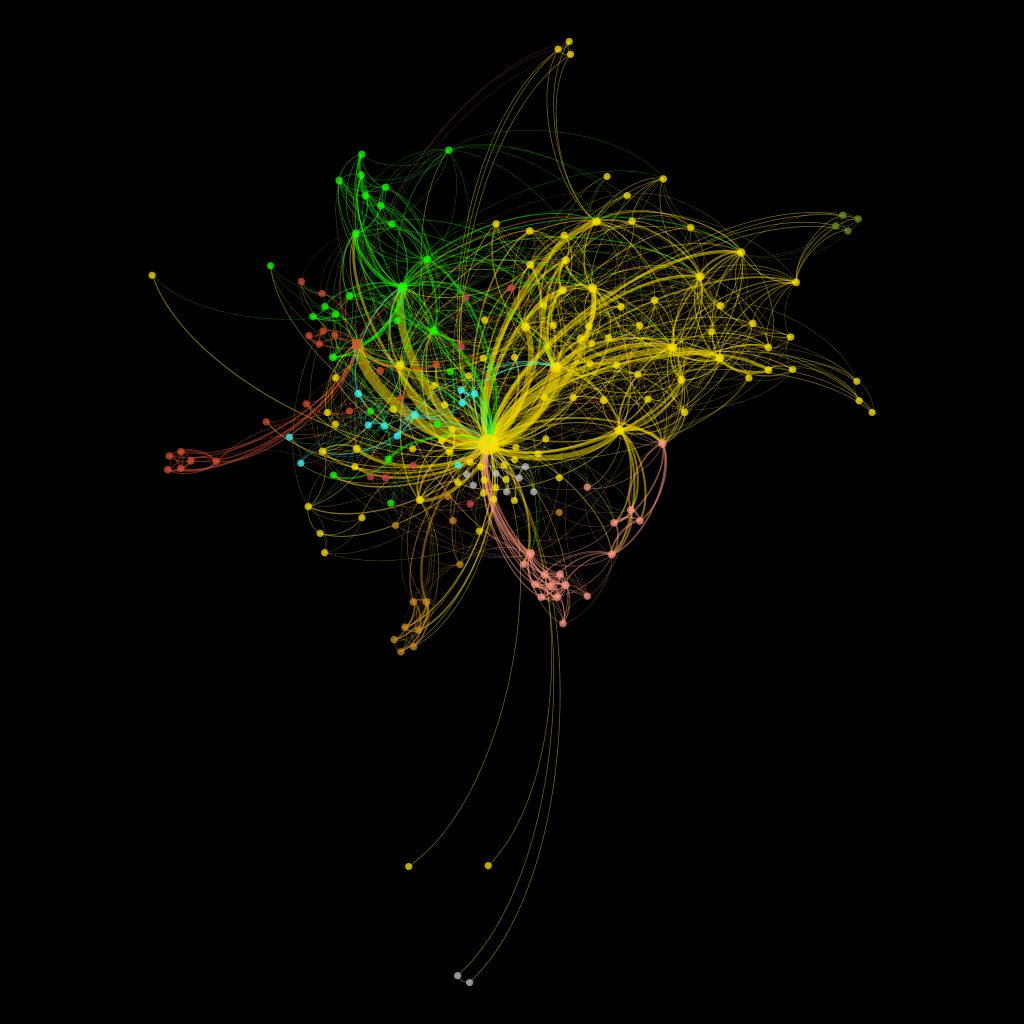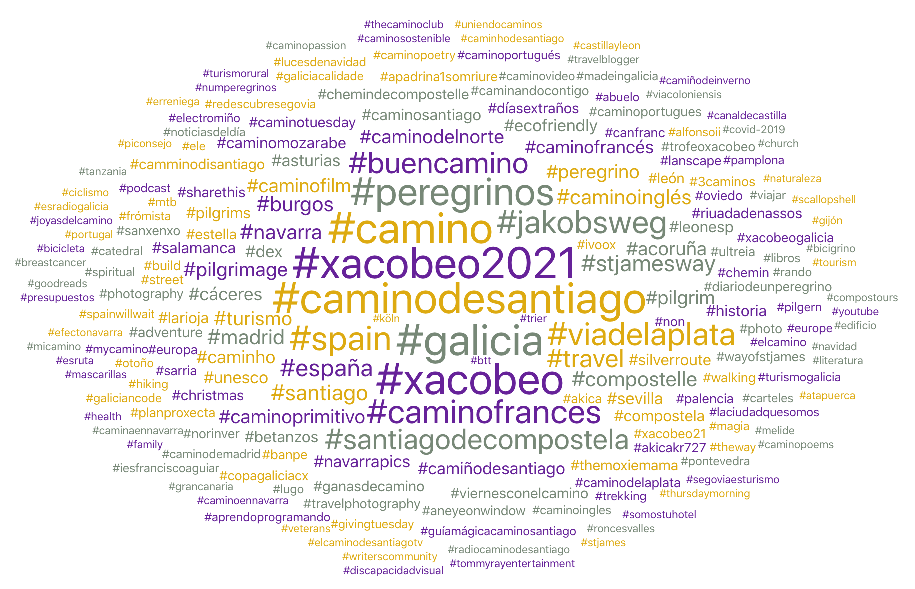Compostela means Field of Stars. It comes from the Latin “campus stellae” and is based on the stars of the Milky Way that, according to legend since the Middle Ages, had been outlined by the apostle St. James and followed by pilgrims to reach his tomb.
Once the pilgrimage was over, they returned home telling everything that had happened to them during the Camino, thus forming the idea of Europe.
Exactly the same as now. Everyone wants to share their experiences.
And what are these pilgrims talking about? Around what terms are conversations generated? If we represent those terms (hashtags) on Twitter as a constellation, we also discover maps, how from one term we jump to another, how they are grouped.

The above network is generated with the 200 most representative terms from the top 770 tweets searching for terms such as #caminodesantiago, #thewayofstjames, #jakobsweg, #caminofrances, … captured during the last week of November 2020.
Do you want to download the high resolution map with the labels to see how they are related? Click here to download your copy with CC BY-SA license.
In the following list you have the most common hashtags and their frequency of appearance in tweets of all languages. As you can imagine, many of them are not a surprise: the different Caminos, pilgrim/pilgrim, cities where the Camino passes through…
However, if we go to the middle and lower part of the table, concepts such as #xacobeo2021, #unesco, #ecofriendly, #diariodeunperegrino, #bicigrino, #uniendocaminos or #guiamagicadelcaminodesantiago start to appear.

Also not going unnoticed is the impact the pandemic is having on El Camino with terms like #covid-19, #mask, … but also #ganasdecamino.
Some fun facts about these nearly 800 tweets:
- It has been RT’d almost 1,000 times
- Like has been published more than 4,700 times.
- The sum of the followers of the users who generated the messages amounts to almost 3,950,00!!!!
Would you like me to do some analysis on a specific topic? Leave me a comment or message me on Twitter.
For the analysis I used Gephi.


That’s what I thought too. Though I just read this:
Santiago from Latin Sanctus Iacobus, “Saint James”. Compostela, attested as Conpostella in 966, from Latin compositella, diminutive of compositus (“ordered, arranged”), meaning “the (well) composed little one” vel sim.[1] A common incorrect etymology derives from the purported campus stellae or field of stars, leading to names such as campo de estrellas in Spanish.[2]